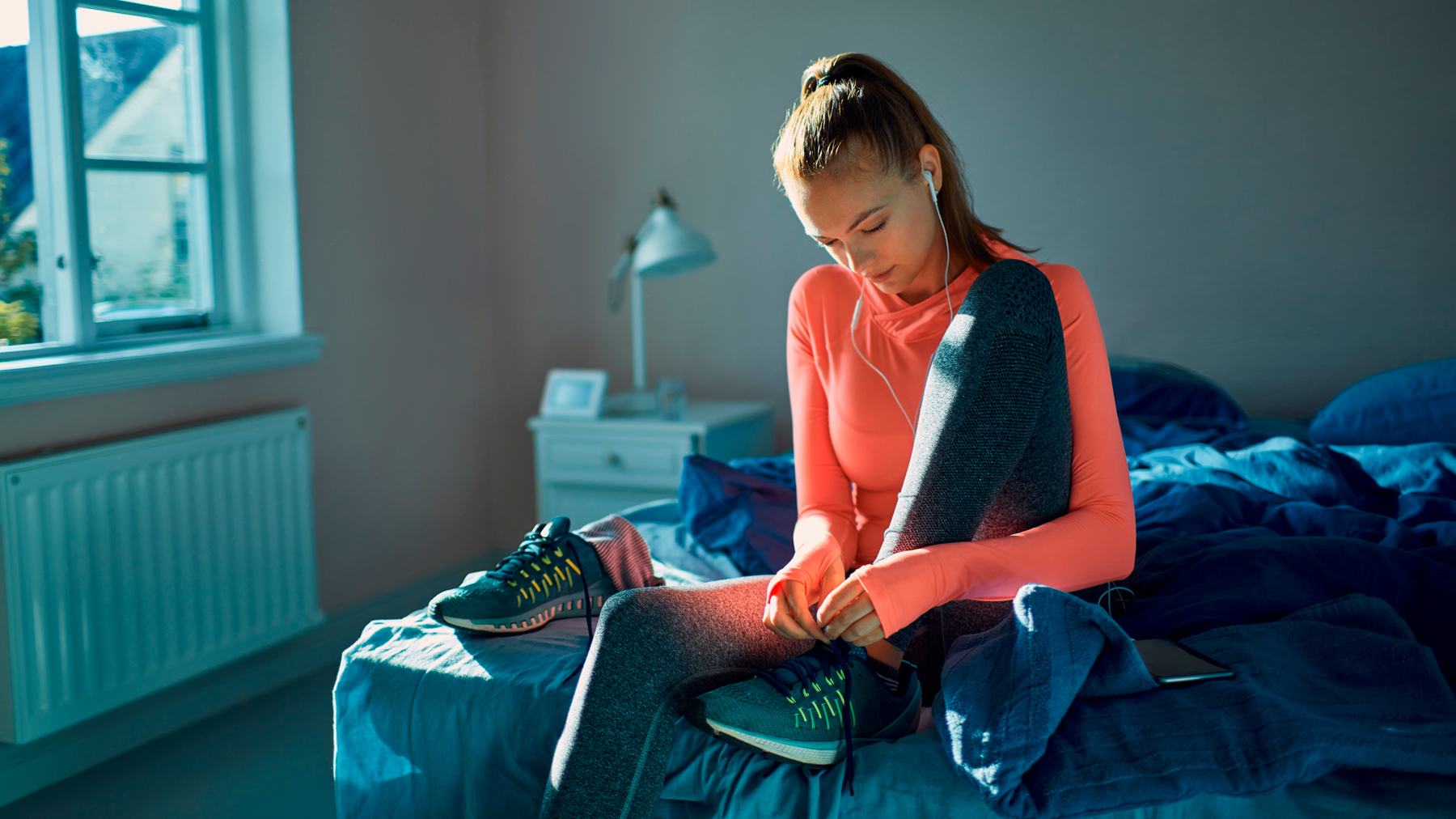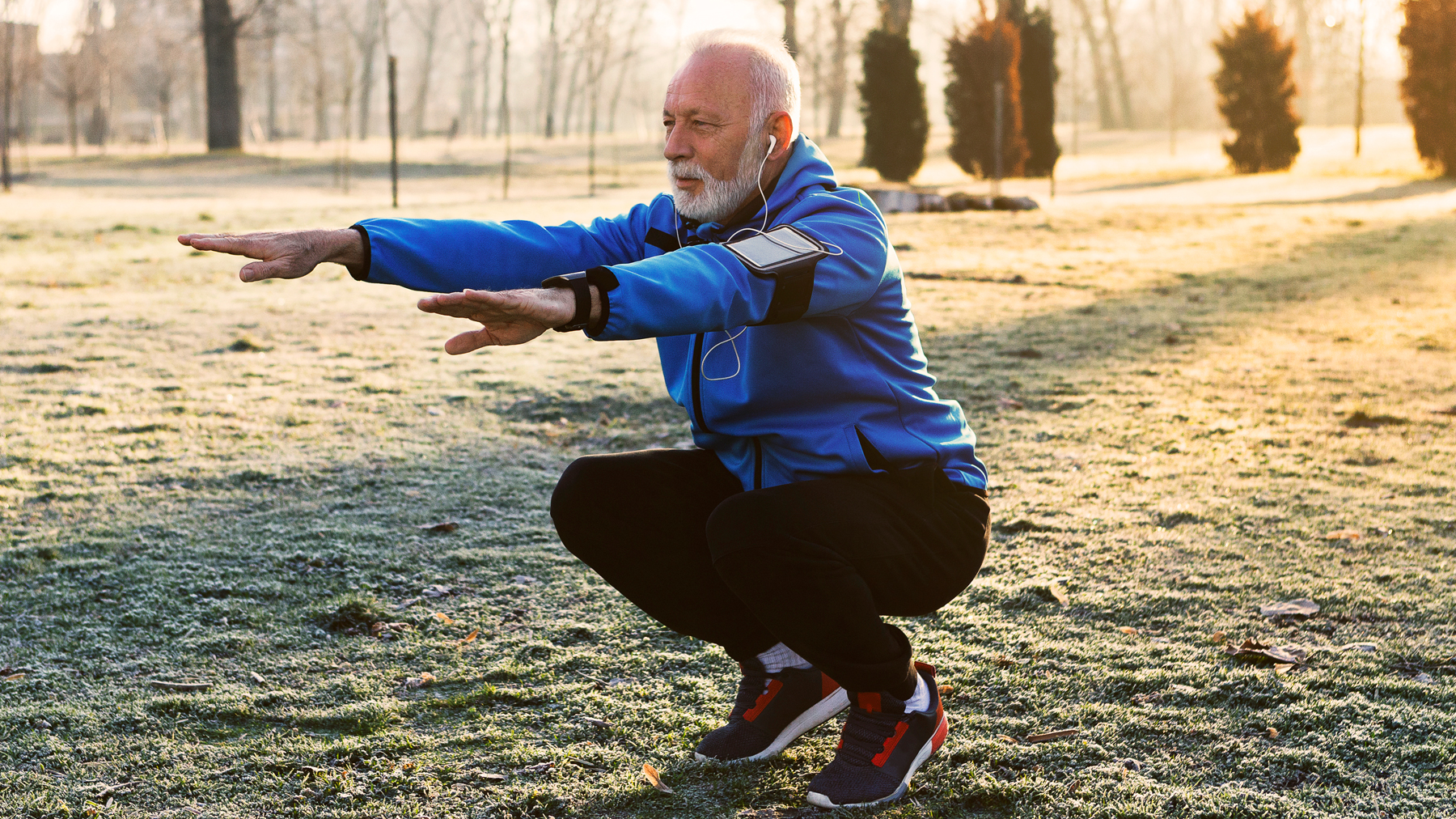Sleep 30% longer to get the fitness results you want, according to research
Giving yourself extra time in bed isn't lazy: it can actually boost your exercise performance


Start your week with achievable workout ideas, health tips and wellbeing advice in your inbox.
You are now subscribed
Your newsletter sign-up was successful
If you're someone who is constantly on the go then you might find you feel pretty knackered when you come to work out. This can end up cutting your exercise short or hindering your performance. Science has found a fairly simple (in theory) fix for this: allow yourself more time in bed.
Whatever your preferred form of exercise is, whether that's slipping into a pair of best running shoes and pounding the pavements after work or fitting in a solid body pump using a set of best kettlebells, we all like to feel our best when we train. If not, you can end up feeling defeated and lose motivation.
However, according to research published in the Medicine & Science in Sports & Exercise journal, allowing yourself more shuteye is an effective way to boost your performance during exercise, without feeling like you're having to work harder.
To reach these promising findings a group of scientists from Australia and Singapore investigated the impact of sleep extension and sleep restriction. They manipulated sleep volume across a group of competitive endurance cyclists and triathletes and tested out how this affected their time trials while pedaling on some of the best exercise bikes.
The participants were asked to undergo a series of endurance tests after having 6.5 to 7 hours sleep a night, then after 8.25 to 8.5 hours of sleep, a 30% increase. Finally, they did the test again after they were allowed just 5 hours of sleep.
The final results revealed the cyclists were significantly slower (they recorded a 3% decline from 58.8 minutes to 60.4 minutes) on the bikes after having only two nights of restricted sleep from their normal shuteye hours. Whereas they were considerably faster following three nights of extended sleep, completing their time trials on the bikes two minutes faster, this meant a 3% improvement (from 58.7 minutes to 56.8 minutes).

Regardless of how much sleep the cyclists got, the level of perceived exertion was the same but their mood and 'pyschomotor vigilance', which refers to their attention and reaction time, improved when their sleep wasn't restricted. The study summarised: “Cumulative sleep time affects performance by altering the perceived exertion of a given exercise intensity.”
Start your week with achievable workout ideas, health tips and wellbeing advice in your inbox.
The main takeaway from this is the more sleep you manage to get the less painful or exhausting your workouts should feel. This does sound like a bit of a hack for anyone struggling with burnout or lack of energy during their fitness regime.
However, increasing sleep time is easier said than done for some. You might suffer from a sleep disorder or perhaps have young children and lack the circumstances you need to snooze for longer than you wish.
The important thing is that you at least can sleep as soundly as possible when you do get to bed. This should increase the quality of sleep you get and at least you should get more hours of deep sleep as opposed to nine hours of very light disrupted sleep.
Practicing some stretching and breathing on one of the best yoga mats can help you to nestle down into a nice sleep mode better. You should also consider investing in better bedding to increase your comfort while asleep, as some of the best mattress toppers can help boost your comfort levels.
Jessica is an experienced fitness writer with a passion for running. Her career in journalism began in local news and she holds a Masters in journalism. Jessica has previously written for Runners World, penning news and features on fitness, sportswear and nutrition.
When she isn't writing up news and features for Fit&Well covering topics ranging from muscle building, to yoga, to female health and so on, she will be outdoors somewhere, testing out the latest fitness equipment and accessories to help others find top products for their own fitness journeys. Her testing pairs up nicely with her love for running. She recently branched out to running 10Ks and is trying to improve her time before moving on to larger races. Jessica also enjoys building on her strength in the gym and is a believer in health and wellness beginning in the kitchen. She shares all of this on her running Instagram account @jessrunshere which she uses for accountability and for connecting with like-minded fitness lovers.
